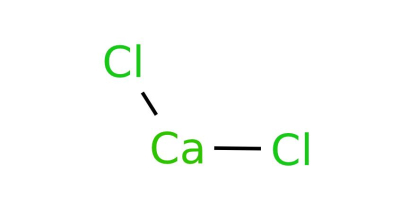Xylitol CAS#87-99-0
1. Thermal Stability: Xylitol's aqueous solution maintains excellent thermal stability, making it perfect for producing health beverages, especially for diabetics.
2. Blood Sugar Control: It doesn’t raise blood sugar levels, making it safe for diabetics, as it is metabolized independently of insulin.
3. Liver & Fat Metabolism: Xylitol helps improve liver function, lowers transaminase levels, and stimulates fat metabolism, benefiting individuals with liver disease.
4. Anti-Cavity & Preservative: Acts as an anti-cavity sweetener, resists yeast and bacterial growth, and provides natural preservative benefits in foods like jams and candies.
Xylitol's aqueous solution exhibits excellent thermal stability, making it an ideal sweetening agent for producing health beverages suitable for diabetics. It is an approved food sweetener under China's GB2760-1996 regulations. This compound can serve as an alternative to glucose and fructose as an energy source for the body while also functioning as a crucial substance for nucleic acid synthesis and detoxification processes. Since diabetic patients experience inadequate insulin secretion, preventing glucose conversion to glucose-6-phosphate, and since xylitol metabolism is independent of insulin, it does not elevate blood sugar levels in diabetics. Additionally, xylitol possesses the unique capability of suppressing ketone body formation, which helps lower transaminase levels in liver disease patients, improves liver function, and stimulates fat metabolism. Oral absorption of this product shows significant individual variability, potentially linked to intestinal bacteria, stomach contents, and genetic factors.
The substance undergoes nearly complete metabolism within the body and is seldom excreted unchanged in urine. Clinically, it's employed to provide caloric supplementation and fluid replacement, enhance carbohydrate metabolism, and eliminate ketonemia during insulin deficiency, serving as an effective regulator for abnormal diabetic metabolism. At normal dosages, it shows minimal impact on liver and kidney function, but excessive consumption may lead to osmotic diarrhea and fluid imbalance. The recommended daily xylitol intake should not exceed 50-70 grams. Xylitol finds application in processing seasonings, beverages, jams, candies, cakes, and other products. Because it resists utilization by yeast and bacteria, it serves as an anti-cavity sweetener while also providing preservative benefits.
Parameters
Melting point | 94-97 °C (lit.) |
Boiling point | 215~217℃ |
density | 1.515 |
vapor pressure | 0.329Pa |
refractive index | 1.3920 (estimate) |
storage temp. | room temp |
solubility | H2O: 0.1 g/mL, clear, colorless |
form | Crystalline Powder |
pka | 13.24±0.20(Predicted) |
color | White |
Odor | at 100.00?%. odorless |
biological source | synthetic |
Water Solubility | SOLUBLE |
Sensitive | Hygroscopic |
Merck | 14,10085 |
BRN | 1720523 |
Dielectric constant | 40.0(Ambient) |
InChIKey | HEBKCHPVOIAQTA-QWWZWVQMSA-N |
LogP | -2.56 at 22℃ |
CAS DataBase Reference | 87-99-0(CAS DataBase Reference) |
NIST Chemistry Reference | Xylitol(87-99-0) |
EPA Substance Registry System | Xylitol (87-99-0) |
Safety Information
Hazard Codes | Xi |
Risk Statements | 36/37/38 |
Safety Statements | 24/25-36-26 |
WGK Germany | 2 |
RTECS | ZF0800000 |
F | 3 |
TSCA | Yes |
HS Code | 29054910 |
Hazardous Substances Data | 87-99-0(Hazardous Substances Data) |
Toxicity | LD50 orally in mice: approx 22 g/kg (Salminen) |














